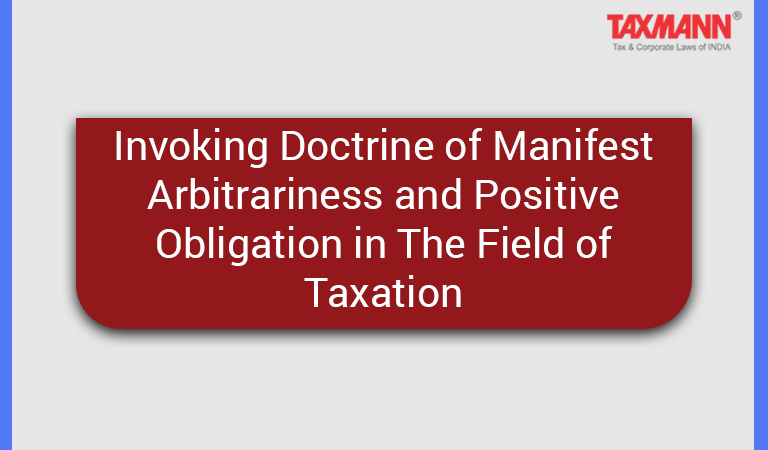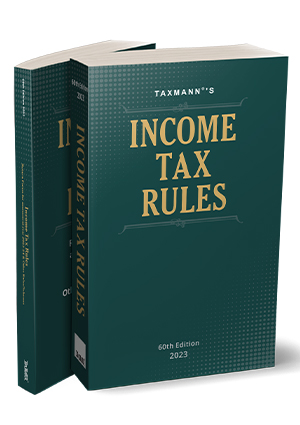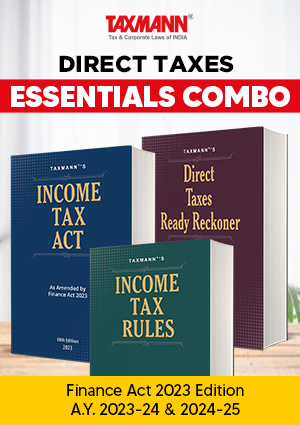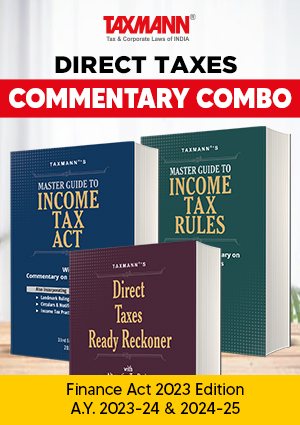Invoking Doctrine of Manifest Arbitrariness and Positive Obligation in the Field of Taxation
- News|Blog|Income Tax|
- 2 Min Read
- By Taxmann
- |
- Last Updated on 25 August, 2021

Karan Kumar Khetani – [2021] 129 taxmann.com 283 (Article)
A basic understanding of the jurisprudence revolving around taxation statues would show that there is a fundamental difference1 between ‘tax’ and ‘fee’, and hence, the distinction made in Article 265 of the Constitution of India, 1950 [in short the “Constitution”] The taxonomy is premised on the fact that the levy of tax is to further a public purpose of raising the general revenue of the State. As to how far can the State go in order to achieve this purpose [or to protect the interest of the revenue], and what are the constraints imposed via judge-made-law, is the mainstay of this piece.
General principles governing the discernment of taxation statutes state that such laws are liable to be construed ‘strictly’. These principles have been reiterated and brought into play by various courts of our country from time to time. Arguably, the plausible explanation in support of these general principles is that there is no ‘equity’ in taxation statutes, which broadly, means that if, under a particular taxation statute, the benefit is extended to a class of subjects, that does not, necessarily, mean that the benefit must also attract the other classes of subject. So far so good! However, the coronavirus disease – 2019 [in short “COVID-19”] pandemic has, undoubtedly, been the most unparalleled and unprecedented crisis of all times. It is in this context, we need to anatomize as to whether, the aforesaid ‘general’ principles, would stand firm, in these, not so general times.
Click Here to Read the Full Article
Disclaimer: The content/information published on the website is only for general information of the user and shall not be construed as legal advice. While the Taxmann has exercised reasonable efforts to ensure the veracity of information/content published, Taxmann shall be under no liability in any manner whatsoever for incorrect information, if any.

Taxmann Publications has a dedicated in-house Research & Editorial Team. This team consists of a team of Chartered Accountants, Company Secretaries, and Lawyers. This team works under the guidance and supervision of editor-in-chief Mr Rakesh Bhargava.
The Research and Editorial Team is responsible for developing reliable and accurate content for the readers. The team follows the six-sigma approach to achieve the benchmark of zero error in its publications and research platforms. The team ensures that the following publication guidelines are thoroughly followed while developing the content:
- The statutory material is obtained only from the authorized and reliable sources
- All the latest developments in the judicial and legislative fields are covered
- Prepare the analytical write-ups on current, controversial, and important issues to help the readers to understand the concept and its implications
- Every content published by Taxmann is complete, accurate and lucid
- All evidence-based statements are supported with proper reference to Section, Circular No., Notification No. or citations
- The golden rules of grammar, style and consistency are thoroughly followed
- Font and size that’s easy to read and remain consistent across all imprint and digital publications are applied




